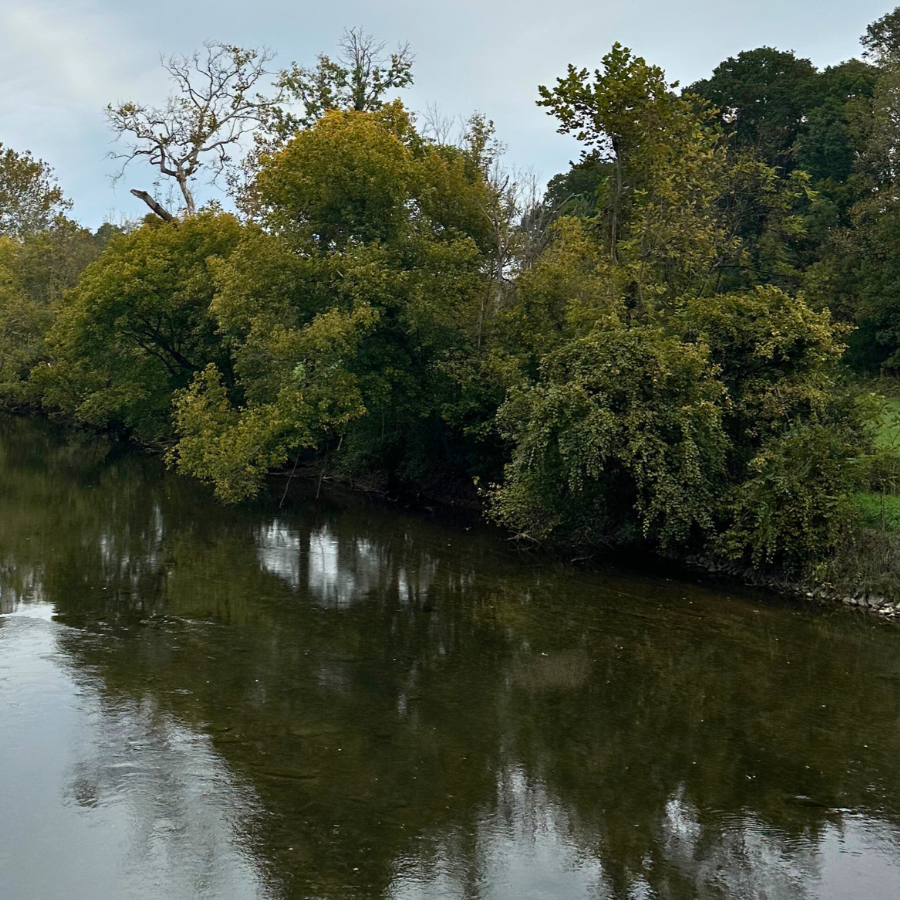Data centers aren’t in the clouds; they’re in the Potomac River region
/The Potomac River region’s resources are at risk from data centers
Data center in loudoun county. Photo credit: Hugh Kenny at Piedmont Environmental Council
If you’ve taken a Sunday drive through Northern Virginia, you might have spotted large warehouses without windows along the highway. These are data centers. They contain computer servers that store, process, and manage large quantities of data, serving as the cornerstone of the digital world.
Data centers aren’t new to the Potomac River region. In Virginia, they date back to the 1990s, but over the past decade, we have seen a boom in construction, especially in Loudoun County, Virginia.
Virginia hosts the largest data center hub, with more than 35% (~150) of all known hyperscale data centers worldwide. As of December 2024, the Commonwealth hosts 10% of the world’s data storage capacity.
Virginia isn’t the only Potomac River region state with data centers
Throughout the region, other states are looking to build data centers too. In West Virginia, Governor Patrick Morrisey signed a bill encouraging data centers to be built in the state and generate their own power sources through microgrids. This bill will allow data centers that are built in the state to bypass local zoning ordinances and other regulations. The goal of the bill is to foster economic development, but it doesn’t take the environmental impacts into account.
In Maryland, data centers were a hot topic at the local and state levels this year. There are already over 40 data centers in the state, with a high concentration in Frederick County. Senators Lewis Young and Justin Ready introduced legislation during the 2025 legislative session that would require various Maryland departments to conduct an analysis of the likely environmental, energy, and economic impacts of data center development in the state. This bill passed in both chambers, but Potomac Conservancy and many advocates across the state were disappointed when Governor Wes Moore vetoed it. If Governor Moore had signed this legislation, it would have provided Maryland residents with more information on the environmental and economic impacts that data centers have in Maryland.
3 reasons we’re concerned about the data center boom
1. Water resources
Data centers in Virginia
Large data centers can use up to 1 million and 5 million gallons of water daily. That is equivalent to how much water a town of 10,000 to 50,000 people uses a day (for reference, that’s the entire town of Winchester, VA, which has ~30,000 people!
Much of the equipment in data centers must run 24 hours a day, or close to that, which generates a lot of heat. To combat the high temperatures, many pump water through tubing that surrounds the equipment, in addition to their air conditioning systems.
In the Potomac River region, our water sources are not unlimited. We experience extreme droughts, and residents in the area have been asked to conserve water during certain periods in recent years. Locals are concerned about their water supply because data centers are using more and more water to cool their facilities.
2. Land resources
Water isn’t the only resource data centers rely on. They also need a lot of space. Loudoun County alone has over 27 million square feet of data centers; that is about the size of Arlington National Cemetery.
Data centers are also encroaching on public lands' integrity. There have been 1,000 acres+ data centers that are proposed to be built adjacent to or near national and state parks like Manassas National Battlefield Park.
3. Lack of transparency
There is currently no public database where the public can learn how much energy or water a given data center uses. This makes it harder for people to fight against data center construction in their neighborhoods because they lack information about it.
Some data centers and companies claim green or sustainable practices, but due to the amount of secrecy in the industry and non-disclosure agreements, environmental organizations and citizens don’t have a way to fact-check.
What we’re fighting for
Short-sighted and irresponsible decisions at the county and local levels are paving the way for more data centers without necessary consideration for community and environmental impacts. Potomac River region residents need adequate state oversight of data center development to combat poor planning decisions that hurt our health. Data centers are getting pushed through local government, sometimes even without a public comment period.
We’re proud to be a part of the Virginia Data Center Reform Coalition alongside dozens of organizations and HOAs dedicated to studying the effects of data centers and urging lawmakers to put common-sense protections in place.
In Maryland, our policy team is closely monitoring any local and state legislation in Maryland and West Virginia related to data centers for their potential impact on the Potomac watershed.
Data centers in Culpeper County. Photo credit: Hugh Kenny at Piedmont Environmental Council









